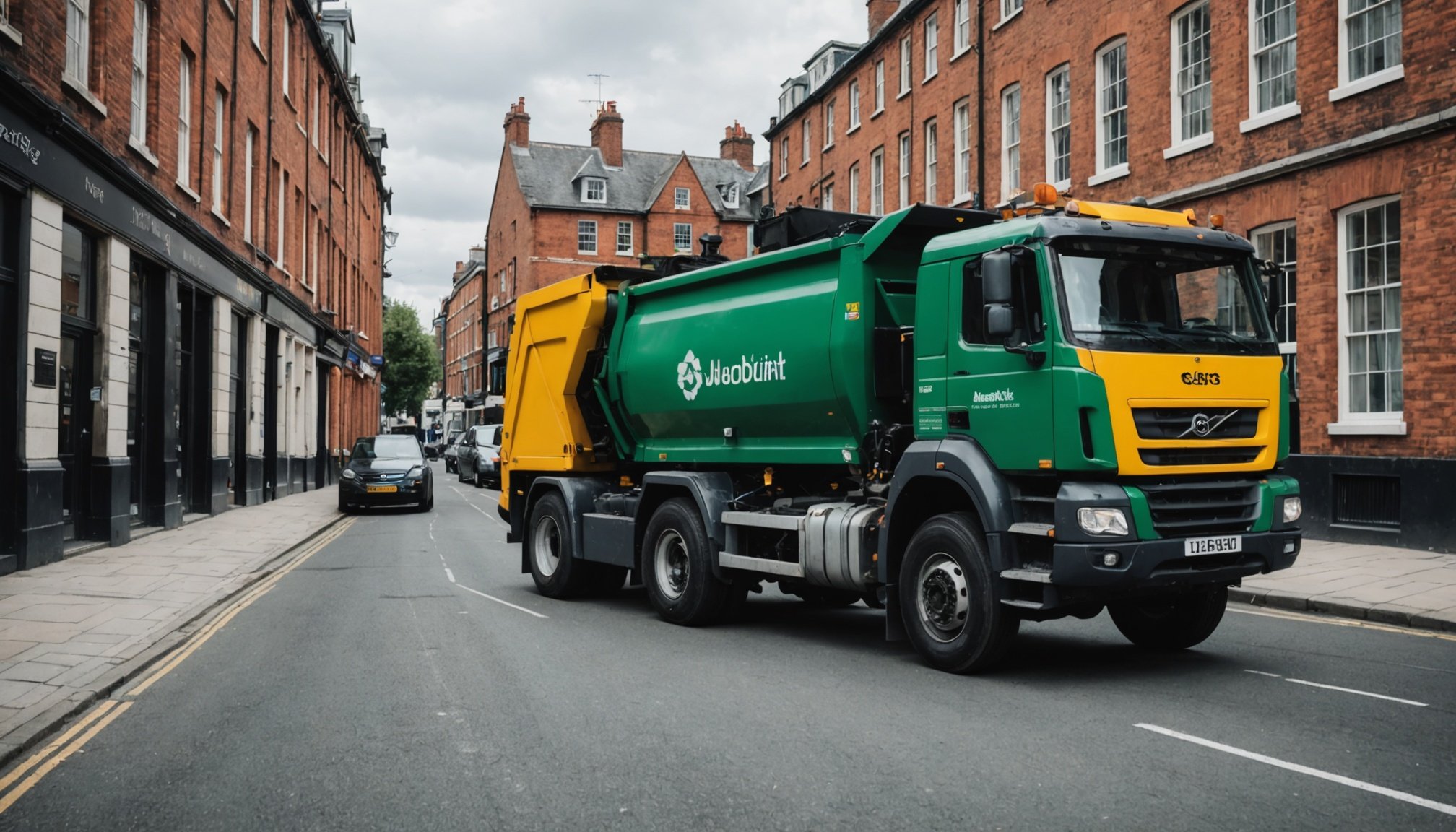Unlocking the Benefits of AI in Revolutionizing Waste Management Across the UK
In the UK, the management of waste has become a critical issue, given the country’s ambitious targets for sustainability and the pressing need to reduce its environmental impact. At the heart of this transformation is the integration of artificial intelligence (AI), which is revolutionizing the way waste is managed, from collection and sorting to energy production and recycling.
Transforming Waste Management with AI
AI is changing the landscape of waste management by introducing efficiency, accuracy, and real-time monitoring. Here are some key ways AI is making a significant impact:
Also to read : Unlocking the Power of AI: How Customer Segmentation Enhances UK Retail Success
Real-Time Monitoring and Data Analysis
AI’s ability to quickly analyze large amounts of data enables real-time assessments of waste management processes. For instance, machine learning (ML) can evaluate satellite images to spot issues such as illegal dumping or waste accumulation before they become major problems[1].
- **Air Quality Monitoring:** AI-powered sensors track pollutant levels and predict changes in air quality, allowing policymakers to take corrective measures.
- **Water Quality Monitoring:** Smart sensors detect contamination in real-time, predicting trends in water quality and making resource management more efficient.
- **Biodiversity Tracking:** AI analyzes satellite images and field data to identify habitat loss, illegal logging, or species decline, aiding conservation efforts.
Enhancing Operational Efficiency
Companies like enfinium are leveraging AI to optimize their energy-from-waste (EfW) operations. Advanced Pattern Recognition (APR) technology scrutinizes operational data to predict equipment malfunctions, refine maintenance schedules, and identify potential issues before they escalate. This proactive approach avoids costly downtime and ensures consistent energy production[2][5].
This might interest you : Organizing Sustainable City Events: A Guide to Reducing Carbon Footprint Effectively
- **Early Detection of Issues:** APR technology identifies potential operational problems before they become critical.
- **Predictive Maintenance:** Predicting equipment failures allows for timely interventions.
- **Optimized Scheduling:** Maintenance schedules are fine-tuned for improved efficiency.
- **Enhanced Reliability:** Overall plant availability is significantly improved.
Smart Waste Management Systems
The integration of Internet of Things (IoT) and low-power wide-area network (LPWAN) technologies is another crucial aspect of modern waste management. Here’s how these technologies are making a difference:
IoT Sensors and LPWAN Connectivity
IoT sensors monitor bin fill levels in real-time, alerting teams when bins are ready to be emptied. This approach reduces unnecessary pickups, optimizes collection routes, and saves resources. LPWAN connectivity ensures reliable and cost-efficient communication, ideal for long-term use in various conditions[4].
- **Real-Time Monitoring:** IoT sensors provide real-time data on bin fill levels.
- **Efficient Collection:** Alerts ensure bins are collected only when necessary.
- **Cost Efficiency:** LPWAN connectivity is cost-effective and suitable for widespread deployment.
- **Compliance:** Improves compliance with S106 agreements by contributing to local infrastructure improvements.
The Role of AI in the Supply Chain
AI is not just limited to the operational aspects of waste management; it also plays a vital role in the supply chain, from sorting to recycling.
Sorting Systems and Recycling
AI-powered sorting systems can identify and sort different types of waste with high accuracy. This technology helps in improving the quality of recyclables, reducing contamination, and enhancing the overall recycling process.
- **Automated Sorting:** AI-driven computer vision systems identify inconsistencies in waste streams, reducing the risk of blockages and unplanned shutdowns.
- **Improved Recycling Rates:** Accurate sorting increases the quality of recyclables, contributing to a more efficient recycling process.
- **Reduced Contamination:** AI helps in detecting and removing contaminants, ensuring that only pure materials are recycled.
Environmental Impact and Sustainability
The use of AI in waste management has significant environmental benefits, aligning with the UK’s goals for sustainability and reducing its carbon footprint.
Circular Economy and Energy Production
enfinium, for example, uses AI to transform non-recyclable waste into heat and partially renewable power, contributing to the UK’s circular economy. By diverting waste from landfills, enfinium generates power for the National Grid and reduces the environmental impact of waste disposal[2][5].
- **Waste-to-Energy:** AI optimizes waste-to-energy processes, increasing the availability and reliability of plants.
- **Carbon Capture and Storage:** Investments in CCS technology aim to remove millions of tonnes of CO2 annually, significantly reducing the carbon footprint.
- **Sustainable Practices:** AI supports sustainable farming by analyzing soil data, predicting crop yields, and identifying pests and diseases, reducing the use of pesticides and fertilizers[1].
Regulatory Frameworks and Data Protection
As AI becomes more integral to waste management, it is crucial to establish a regulatory framework that balances innovation with data protection.
Balancing Innovation and Data Protection
The UK’s Information Commissioner’s Office (ICO) has emphasized the need for clear, practical regulations that support innovation while safeguarding individual rights and robust data protection measures. This includes ensuring that companies justify the use of data, define clear purposes for data collection, and allocate responsibility across the AI supply chain[3].
- **Legitimate Interests:** Companies must justify why they need data and demonstrate appropriate safeguards.
- **Purpose Limitation:** Organizations must clearly define and communicate their reasons for using personal data at each stage of AI development.
- **Responsibility Allocation:** Clear definition of each organization's responsibilities in the AI supply chain is essential.
Practical Insights and Actionable Advice
For local councils and businesses looking to adopt AI in their waste management systems, here are some practical insights and actionable advice:
Implementing IoT and LPWAN Technologies
- Start Small: Begin with pilot projects to test the efficacy of IoT sensors and LPWAN connectivity.
- Collaborate: Partner with technology providers to ensure seamless integration and support.
- Train Staff: Educate staff on the use and benefits of new technologies to maximize efficiency.
Leveraging AI for Operational Efficiency
- Data Collection: Ensure comprehensive data collection to feed AI algorithms.
- Continuous Monitoring: Use AI for real-time monitoring to predict and prevent issues.
- Maintenance Scheduling: Optimize maintenance schedules using predictive analytics.
Ensuring Regulatory Compliance
- Clear Policies: Establish clear policies on data use and protection.
- Transparency: Communicate the purposes of data collection and use to stakeholders.
- Responsibility: Clearly define and allocate responsibilities within the AI supply chain.
The integration of AI in waste management is a game-changer for the UK, offering unprecedented levels of efficiency, sustainability, and environmental protection. As Chris Bebbington, Group Head of Asset Management at enfinium, notes, “Our aim is to pioneer trailblazing technology in the EfW sector, adopting forward-thinking and innovative solutions that enable us to improve the performance of our day-to-day operations.”
By embracing AI, IoT, and other advanced technologies, the UK can significantly reduce its waste management challenges, enhance recycling rates, and contribute to a more sustainable future.
### Table: Benefits of AI in Waste Management
| **Benefit** | **Description** |
|
|--------------------------------------------------------------------------------|
| **Real-Time Monitoring** | AI analyzes data in real-time to predict and prevent issues. |
| **Operational Efficiency** | AI optimizes maintenance schedules and predicts equipment malfunctions. |
| **Sorting and Recycling** | AI-powered sorting systems improve recycling rates and reduce contamination. |
| **Environmental Impact** | AI supports sustainable practices, reduces carbon footprint, and enhances energy production. |
| **Regulatory Compliance** | AI ensures compliance with data protection regulations and allocates responsibilities. |
| **Cost Efficiency** | AI and IoT technologies reduce operational costs and improve resource allocation. |
In conclusion, the future of waste management in the UK is bright, thanks to the transformative power of AI and related technologies. As we continue to innovate and adopt these solutions, we move closer to a more sustainable, efficient, and environmentally conscious society.







